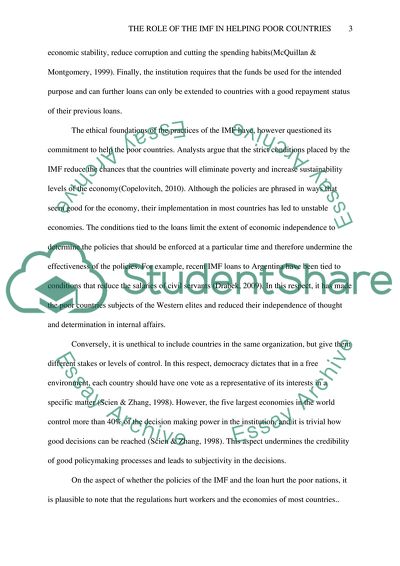The role of the IMF in helping poor and debt-troubled countries Case Study - 4. https://studentshare.org/finance-accounting/1823339-the-role-of-the-imf-in-helping-poor-and-debt-troubled-countries
The Role of the IMF in Helping Poor and Debt-Troubled Countries Case Study - 4. https://studentshare.org/finance-accounting/1823339-the-role-of-the-imf-in-helping-poor-and-debt-troubled-countries.


